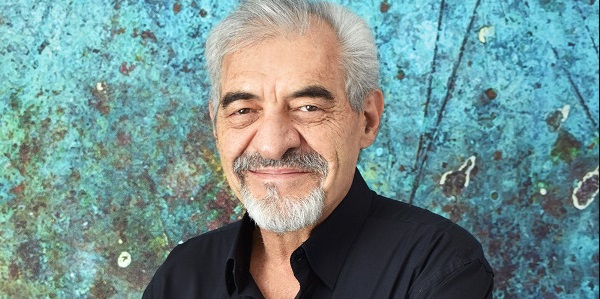
South Africa
Ian Fuhr
- Founder, Sorbet Group Beauty Salons and CEO, The Hatch Institute (Diversified)
Born Vanderbijlpark, South Africa, 1953.
“If I can get the environment right, if I can build a community of people that accept and respect and trust each other, then we have a much better chance of being successful in business.”
Summary
Ian Fuhr is Founder of the Sorbet Group, the largest chain of beauty salons in South Africa. In this interview, Fuhr discusses leaving college in the mid-1970s to work in the music business for a year and a half instead. After a trip to the United States in 1976 and encountering Kmart for the first time, Fuhr’s brother Rodney encouraged him to leave the music business and help him open the first Kmart store in South Africa, without knowing that they needed authorization from the Kmart Corporation. Kmart was opened during the summer of 1976, right after the Soweto uprising, which consisted of huge demonstrations by Black protesters against the apartheid regime in the country. He explains his experience with quickly learning about the retail business, the store opening, and attracting employees and customers. An important dimension was hiring a Black mentor who could deepen his understanding of how to reach and understand the Black African market in the country. This was the beginning of the process of Fuhr learning more deeply about the racial injustices in the country. In the early 1980s, Fuhr joined Letta Mbulu and Caiphus Semenya to start a new record company signing artists such as Hugh Masekela, leaving Rodney to run Kmart alone for a few years. In 1986, as a result of consumer boycotts in South Africa, Kmart went into liquidation, prompting Fuhr to leave the music business to help his brother. In 1988, after being sued by Kmart Corporation for using the Kmart trademark and logo for ten years without permission, Fuhr renamed the store Super Mart. In 1991, three years before the end of the apartheid, Fuhr left Super Mart to start a race relations consultancy called Labour Link, and further developed a play about racism in the workplace, which was a huge success. In 2004, Super Mart was sold to the Edcon Group, and renamed JetMart. Shortly after this, Ian Fuhr began looking into the beauty industry in South Africa. After realizing that there was not a large chain of beauty salons in South Africa, he began developing the Sorbet Group, first opening six stores in August 2005. The group had 22 stores by 2009 before it began franchising further stores. In this interview, Fuhr discusses learning about the beauty market, the importance of credible and viable business models, and the significance of building a brand culture and service philosophy. The service philosophy that Fuhr created for the Sorbet Group was that if customers were not satisfied with their service, they did not have to pay, and if they did not like a product they purchased, they could bring it back for a full refund no matter how much was used. Fuhr further describes the importance of providing extraordinary service rather than a short-term profit orientation. After 2009 Sorbet attracted many franchisees, 95% of which were women, typically with business experience rather than having worked in the beauty industry. Fuhr also discusses his failed strategy attempt to expand Sorbet to Britain in 2015. In 2017, with 220 stores, Fuhr sold the Sorbet Group to the newly founded Long4Life. To conclude the interview, Fuhr describes his new undertaking, the Hatch Institute, which focuses on life coaching and business coaching for SMEs and entrepreneurs.
Video Clips by Topic
Building Brands
Ian Fuhr, founder of Sorbet, the largest chain of beauty salons in South Africa, describes how he built the Sorbet brand through offering unconditional refunds and careful training of staff in the company’s business philosophy.
Keywords:
Building Brands, South Africa
Ethnicity and Race (1)
Ian Fuhr, who later founded Sorbet, the largest chain of beauty salons in South Africa, describes his struggles to convince white-owned companies in South Africa in the 1990s to take racism in the workplace seriously, and how he developed a play on the subject to try to emphasize the importance of the issue.
Keywords:
Ethnicity and Race, South Africa
Ethnicity and Race (2)
Ian Fuhr, who later founded Sorbet, the largest chain of beauty salons in South Africa, describes how he was sent to a refinery owned by the Murray & Roberts group in the 1990s and encountered appalling racism at the top management. The CEO eventually took steps to implement change after it became clear that racism was badly impacting the company’s productivity, as black workers silently resisted in response.
Keywords:
Ethnicity and Race, South Africa
Start-Up
Ian Fuhr, founder of Sorbet, the largest chain of beauty salons in South Africa, discusses how he saw an opportunity in an industry in which he had no experience, but rather fresh eyes.
Keywords:
Start-up, South Africa
Additional Resources
- The Subversive Power of Servant Leadership, TEDxJohannesburg, February 22, 2016.
- "Serial Entrepreneur" Ian Fuhr Shares His Secrets to Success, Jacaranda FM, August 22, 2018.
- CEOwise Words with Ian Fuhr - How Ian Fuhr got his team to understand the philosophy of his business, CEOwise, November 14, 2018.
Interview Citation Format
Interview with Ian Fuhr, interviewed by Nien-hê Hsieh, Johannesburg, South Africa, September 27, 2019, Creating Emerging Markets Oral History Collection, Baker Library Special Collections, Harvard Business School.
